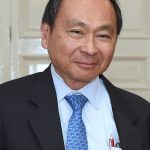 1952 – Francis Fukuyama, American-Japanese political scientist, economist, and writer, is born in Chicago. Fukuyama is best known for his book The End of History and the Last Man, which argued that the worldwide spread of liberal democracies, Western free market capitalism, and its way of life could signal the point of the end of the socio-cultural evolution of mankind, and become the ultimate form of human government. Fukuyama is also associated with the rise of the neoconservative movement, from which he has distanced himself since the 1990s.
1952 – Francis Fukuyama, American-Japanese political scientist, economist, and writer, is born in Chicago. Fukuyama is best known for his book The End of History and the Last Man, which argued that the worldwide spread of liberal democracies, Western free market capitalism, and its way of life could signal the point of the end of the socio-cultural evolution of mankind, and become the ultimate form of human government. Fukuyama is also associated with the rise of the neoconservative movement, from which he has distanced himself since the 1990s.
 1962 – Vice Admiral Vasily Arkhipov refuses to order a nuclear torpedo to be fired at a US warship. As commander of the fleet and in command of the B-59 oil submarine, Arkhipov refused to authorize the use of the nuclear torpedo captain against the United States Navy, a decision that required the agreement of the three senior officers on board. In 2002, Thomas Blanton, then director of the U.S. National Security Archive, said Arkhipov “saved the world.”
1962 – Vice Admiral Vasily Arkhipov refuses to order a nuclear torpedo to be fired at a US warship. As commander of the fleet and in command of the B-59 oil submarine, Arkhipov refused to authorize the use of the nuclear torpedo captain against the United States Navy, a decision that required the agreement of the three senior officers on board. In 2002, Thomas Blanton, then director of the U.S. National Security Archive, said Arkhipov “saved the world.”
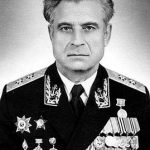 1962 – Italian businessman and businessman Enrico Mattei dies at the age of 56. After World War II, he was given the task of dismantling the Italian Petroleum Agency Agip. Instead, Mattei enlarged and reorganized it into the National Fuel Trust, (ENI). Under his leadership, ENI negotiated significant oil concessions in the Middle East, as well as an important trade agreement with the Soviet Union. On October 27, 1962 on a flight from Catania (Sicily) to Milan Linate Airport, Mattei’s plane, a Morane-Saulnier MS.760 Paris, crashed on the outskirts of the small village of Bascapè in Lombardy. The cause of the accident has been a mystery.
1962 – Italian businessman and businessman Enrico Mattei dies at the age of 56. After World War II, he was given the task of dismantling the Italian Petroleum Agency Agip. Instead, Mattei enlarged and reorganized it into the National Fuel Trust, (ENI). Under his leadership, ENI negotiated significant oil concessions in the Middle East, as well as an important trade agreement with the Soviet Union. On October 27, 1962 on a flight from Catania (Sicily) to Milan Linate Airport, Mattei’s plane, a Morane-Saulnier MS.760 Paris, crashed on the outskirts of the small village of Bascapè in Lombardy. The cause of the accident has been a mystery.
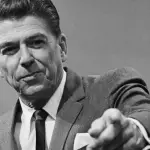 1964 – During a televised debate on the US presidential race, incumbent President Ronald Reagan delivers his famous “A Time for Choosing” speech. This speech was held in his duel within the Republican Party, in front of candidate Barry Goldwater. The speech catapulted Reagan into a character of national importance. Even to this day, “Speech” is considered one of the most effective ever made on behalf of a candidate .. Reagan was later named “Great Communicator” in recognition of his effective oratory skills.
1964 – During a televised debate on the US presidential race, incumbent President Ronald Reagan delivers his famous “A Time for Choosing” speech. This speech was held in his duel within the Republican Party, in front of candidate Barry Goldwater. The speech catapulted Reagan into a character of national importance. Even to this day, “Speech” is considered one of the most effective ever made on behalf of a candidate .. Reagan was later named “Great Communicator” in recognition of his effective oratory skills.
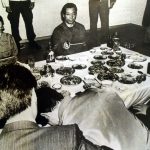 1979 – Saint Vincent and the Grenadines declares independence from Great Britain. This state positioned on the Caribbean coast, became the last of the Windward Islands to gain full independence. The country chose to remain within the British Commonwaelth, retaining Queen Elisabeth as monarch, represented in the country by a Governor-General. The capital of Saint Vincent and the Grenadines, he chose Kingstown as his capital.
1979 – Saint Vincent and the Grenadines declares independence from Great Britain. This state positioned on the Caribbean coast, became the last of the Windward Islands to gain full independence. The country chose to remain within the British Commonwaelth, retaining Queen Elisabeth as monarch, represented in the country by a Governor-General. The capital of Saint Vincent and the Grenadines, he chose Kingstown as his capital.
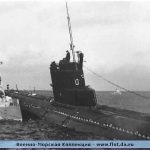 1981 – During the Cold War, the Soviet submarine S-363 describes the east coast of Sweden. The S-363 was a Soviet Whiskey Navy submarine that became famous under the designation U 137 when it sailed under siege on October 27, 1981. The voyage took place off the south coast of Sweden, about 10 kilometers from Karlskrona, one of the the largest Swedish naval bases. U 137 was the unofficial Swedish name for the ship, as the Soviets considered the names of most of their submarines since that time and did not disclose them. This incident was also called as Whiskey on the rocks.
1981 – During the Cold War, the Soviet submarine S-363 describes the east coast of Sweden. The S-363 was a Soviet Whiskey Navy submarine that became famous under the designation U 137 when it sailed under siege on October 27, 1981. The voyage took place off the south coast of Sweden, about 10 kilometers from Karlskrona, one of the the largest Swedish naval bases. U 137 was the unofficial Swedish name for the ship, as the Soviets considered the names of most of their submarines since that time and did not disclose them. This incident was also called as Whiskey on the rocks.
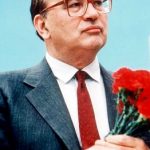 1995 – Former Italian Prime Minister Bettino Craxi is convicted in absentia of corruption. Craxi, who was involved in the investigations carried out by the judges of “Mani Pulite” in Milan, was eventually convicted of corruption and illegal financing of the PSI. He always opposed allegations of corruption while accepting illegal funds that allowed costly political activity. The PSI was less financially powerful than the two largest parties, Christian Democracy and the Communists. Bettino Craxi died in Tunisia in 2000.
1995 – Former Italian Prime Minister Bettino Craxi is convicted in absentia of corruption. Craxi, who was involved in the investigations carried out by the judges of “Mani Pulite” in Milan, was eventually convicted of corruption and illegal financing of the PSI. He always opposed allegations of corruption while accepting illegal funds that allowed costly political activity. The PSI was less financially powerful than the two largest parties, Christian Democracy and the Communists. Bettino Craxi died in Tunisia in 2000.
 1999 – A terrorist attack takes place in the Parliament of Armenia, in the capital, Yerevan. The shooting of several gunmen, consisting of five commandos, led by Nairi Hunanyan, killed two de facto decision-makers in the country’s political leadership. Prime Minister Vazgen Sargsyan and Speaker of Parliament Karen Demirchyan. The shootings led to significant changes in the country’s political life. It remains a subject of numerous conspiracy theories, including President Kocharyan, whose term was often criticized as authoritarian. Sargsyan and Demirchyan were posthumously honored with the title of National Heroes of Armenia.
1999 – A terrorist attack takes place in the Parliament of Armenia, in the capital, Yerevan. The shooting of several gunmen, consisting of five commandos, led by Nairi Hunanyan, killed two de facto decision-makers in the country’s political leadership. Prime Minister Vazgen Sargsyan and Speaker of Parliament Karen Demirchyan. The shootings led to significant changes in the country’s political life. It remains a subject of numerous conspiracy theories, including President Kocharyan, whose term was often criticized as authoritarian. Sargsyan and Demirchyan were posthumously honored with the title of National Heroes of Armenia.






